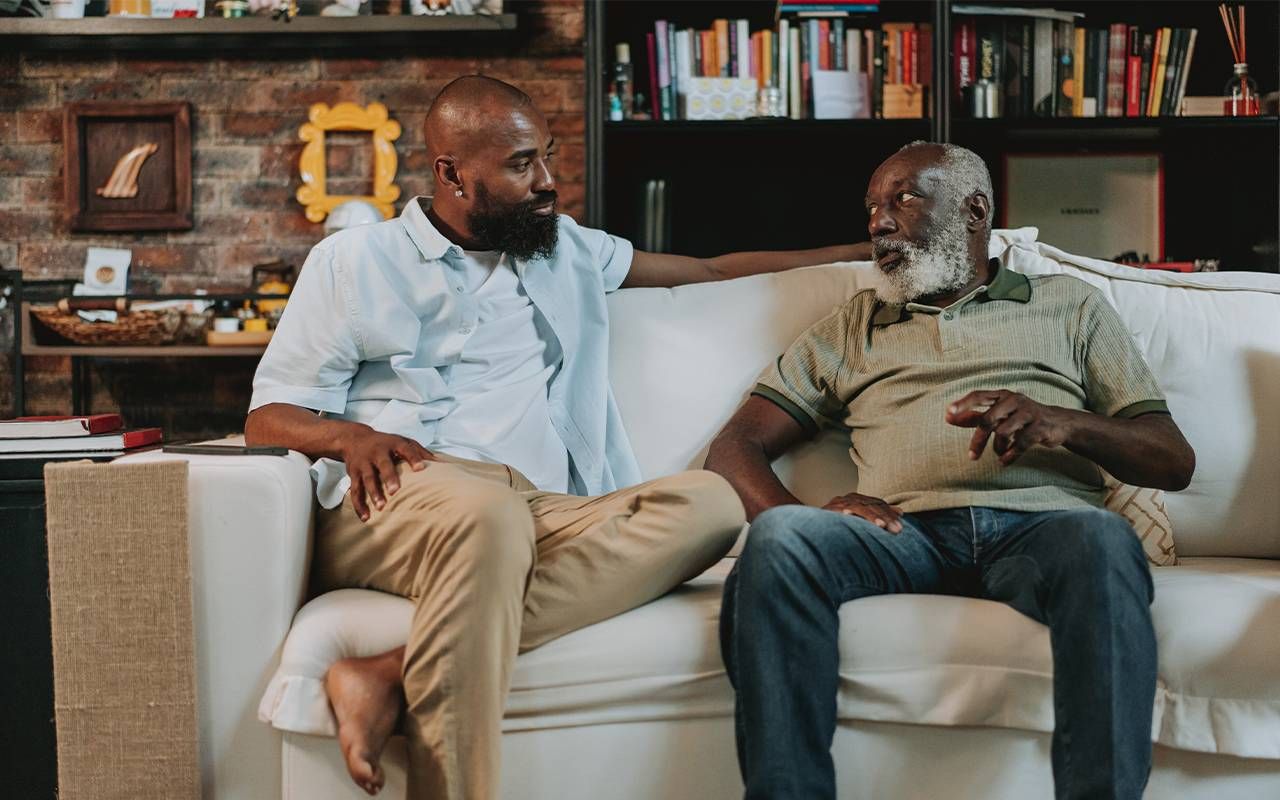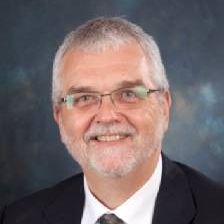Better Ways to Talk With Someone Living With Cancer
I'm currently being treated for cancer. I have become very aware of what is helpful and what isn't.
It is common knowledge and well supported in social science research that people need others to thrive. The presence of sufficient social support is linked to both physical and mental well-being.
For many years of my professional life, I have worked as a psychologist practicing psychotherapy with individuals and their families facing the challenges of critical and life-threatening illnesses. Personally, at the ripe old age of 69, I now find myself in the throes of aggressive treatment for prostate cancer.

After as many years of serving as witness to the struggles of others, it is quite a shift to find myself on the inside of cancer, looking out, rather than on the outside, looking in. I understand with a new perspective what so many have discussed over the years: Even in the presence of those loving and caring people who mean well, many familiar platitudes, such as "Take care of yourself," meant to offer good will, are profoundly less sensitive, helpful and encouraging than are wished.
After as many years of serving as witness to the struggles of others, it is quite a shift to find myself on the inside of cancer, looking out, rather than on the outside, looking in.
There are better ways to talk with someone who has cancer. Doug is a 70-year-old fellow whose cancer currently is in remission, living with the knowledge that, as he says, "There is a natural progression in my life that things may fall apart at any minute." He continues, "It's too bad that so many people who care about me are not good listeners."
Doug is right. Most of us are not as good at listening as we would like to think. Conveying genuine care and concern requires the learned skill of active listening.
As Doug says, "I categorize people into groups based on how well they listen. These categories are defined, at one end, by those who are high maintenance and drain my energy. At the other end are my intimates, who I choose to be more revealing of all my 'up-and-down' moments. These are the people who can absorb all my emotional expression and hold my vulnerability with tenderness."
'How Are You' Is Not a Question
Lynn is in her mid-60s and in recovery from an endometrial cancer requiring an arduous course of chemotherapy and multiple radiation treatments.
She says, "I've sworn that I'll never say 'how are you' again. It is a greeting, not a legitimate question. I would rather be acknowledged with a friendly 'Good morning' which does not need personal disclosure from me. It may be a little harsh, but it is the truth — when greeted, most people do not really want to know how I am. That's OK. A 'how are you' means I must think about how attentive the speaker really is to my health and well-being."
The Art of Active Listening
A better way to enter a conversation with a person who has cancer is to offer an invitation, rather than a question, e.g., "I've been thinking of you and know there is so much going on in your life. I'd like to hear where you are in the course of treatment and about any changes."
As Lynn says, "It is troubling that we live in a world that seeks to hide illness. Many conversations orient toward making it look like nothing is happening. 'You look good' is not particularly helpful, since it puts your experience on me. I sense someone's genuine care so much more directly when asked, 'How are you feeling? I've had you on my mind.'"
"People tell me with some frequency 'Well, it could be worse,' and I think, 'Well, it could be, but this is pretty bad.'"
Active listening requires immediacy to encourage another to speak her truth. Face-to-face conversation invites the listener to attend to non-verbal body language and hear the music in the voice of the other in addition to the spoken word. Such listening involves holding information without imposing opinions or solutions.
"People tell me with some frequency 'Well, it could be worse,' and I think, 'Well, it could be, but this is pretty bad,'" says Doug. "I have enough on my mind not to be in the cancer contest of who's ahead and who's behind."
As Doug and Lynn note and as has been found by most cancer patients, caring people want to say something supportive. Comments falling under the rubric of "I'm sure it'll all turn out OK" may not be right or accurate, as a matter of truth, in the patient's experience. When someone lives with the health problems of cancer, being given unsolicited advice as a means of caring is insensitive and feels dismissive.
'If There's Anything I Can Do, Let Me Know'
A supportive social network is necessary to navigate the highs and lows of life. A primary means of talking intentionally to a person with cancer is to provide instrumental aid, the kind of active social support where help is given in physical and tangible ways. Helping a person with cancer in a practical way reduces stress about a problem. Being actively involved by taking responsibilities or completing tasks is the tangible manifestation of "… if there is anything I can do." It is work that is seen, accepted, and physically performed on behalf of the person with cancer.
"I brought you dinner. I know you probably don't want to eat much, so I packed some high protein things."
"If there's anything I can do…" sounds loving but is not helpful. The offer puts the onus of responsibility on the other, requiring multiple decision points to identify the context of help. A better way to engage in a meaningful way is to offer actionable help that meets specific needs. Lynn remembers a neighbor who said, "I know your energy is at rock bottom and your dog needs tending." The neighbor came twice daily during Lynn's radiation treatments to walk her cherished pet.
My own course of radiation severely disrupted my appetite and desire to eat. An old friend asked about my favorite soups and kept the freezer stocked. She frequently was seated in the waiting room of the cancer institute where I received radiation. "I brought you dinner," she would say. "I know you probably don't want to eat much, so I packed some high protein things."
My treatment reached a heightened intensity during the holidays. A dear friend called at the beginning of the season and said with tongue-in-cheek, "Scrooge, I know you aren't in any place to deal with Christmas. Let me take care of it. We'll have a quiet day governed by your tolerance for good will to all." My friend's willing spirit to anticipate this unmet need was loving and thoughtful.
When You Aren't Geographically Close
In his professional life, Doug had a long history of international travel. When his cancer became more public, many of his friends and associates were in contact, wondering how they could help.
"I have chemo brain, so my memory is poor. When you write, I keep your notes to re-read and re-visit your get-well wishes."
Doug remembers consistently telling these good people, "I am doing what I need and have several folks close by who are helping me with my day-to-day health care. What you can do is to worry a little about me. I don't have much energy, so I promise to send a regular group note by email every couple of weeks, and I would like to hear from you more often by mail. I have chemo brain, so my memory is poor. When you write, I keep your notes to re-read and re-visit your get-well wishes."
This informal support in his social circle provided an invaluable wellspring of good will. "When I was feeling the worst impact of treatment, I would have a caregiver read me cards and notes," he says. "I felt held."
Talk About the Weather
I join Doug, Lynn, and a myriad of cancer patients I have seen in therapy who say, "Wish me well." Consistently, patients diagnosed with cancer keep the disease in stark focus and as figural, obvious and looming in day-to-day life. Most of us welcome hearing about ordinary, good things, like the coming of a new season or an interesting new series on Netflix. Smile, even if you are alarmed with the obvious physical changes exacted by noxious treatments. Listen without interrupting, without planning on what to say next.


